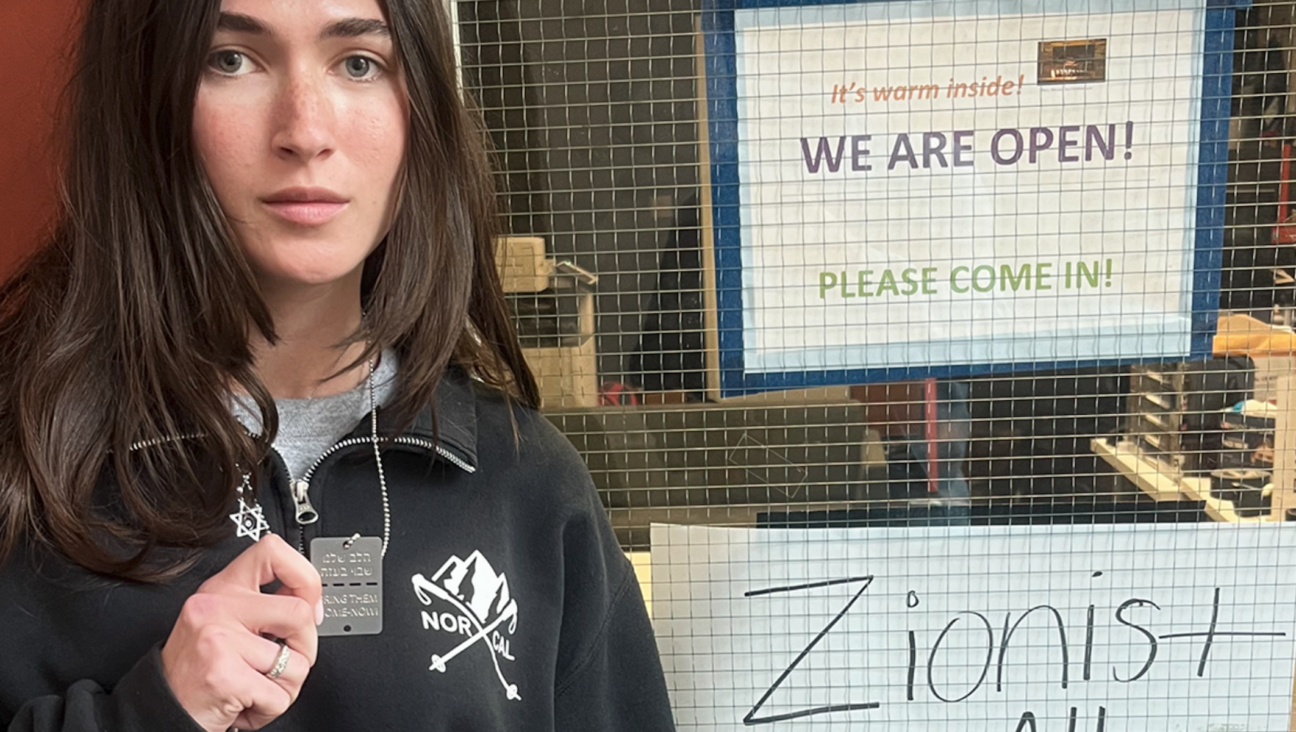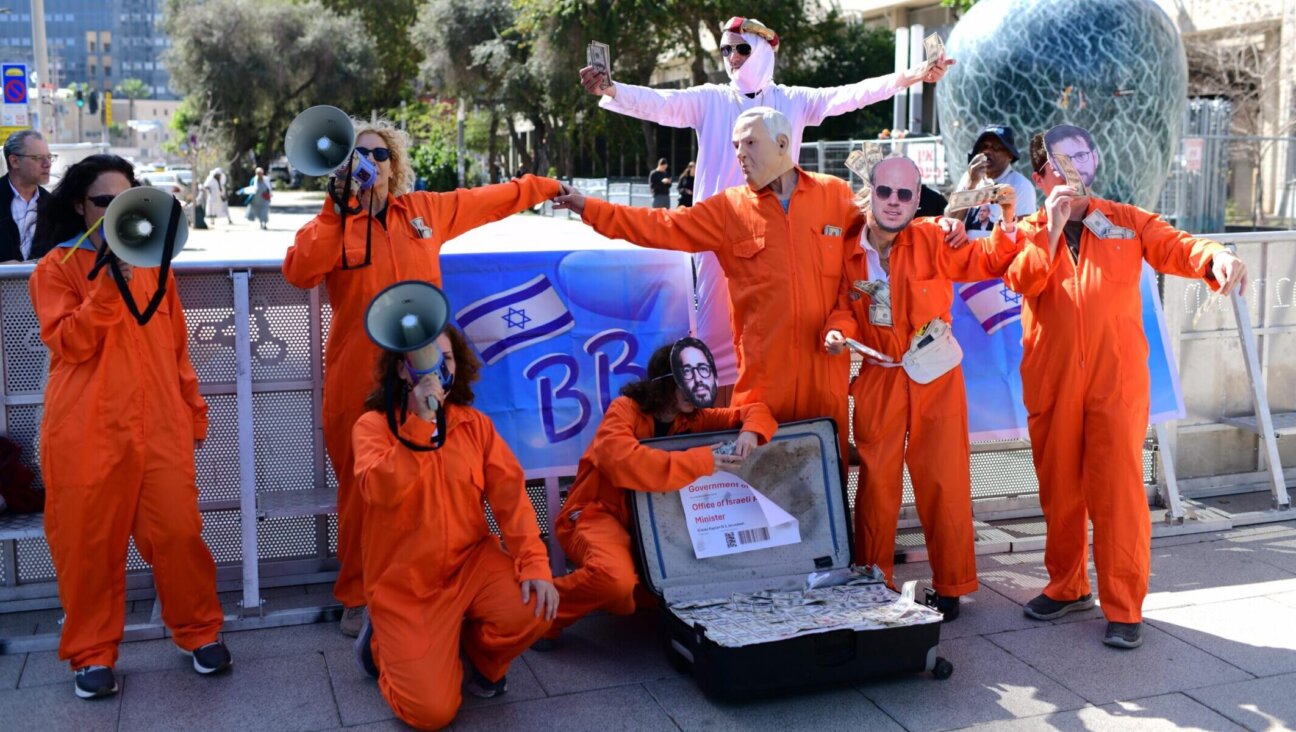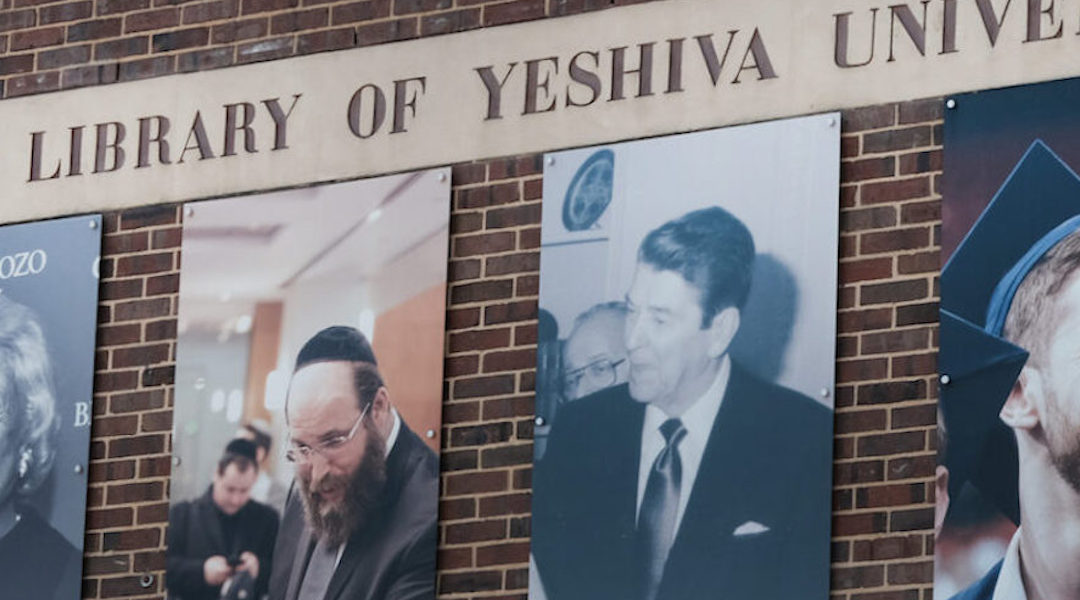Rift Splits Divestment Drive on Campus
Following what some observers describe as a major rift within the campus divestment campaign against Israel, organizers of a controversial conference at Rutgers University are relocating the event to Ohio State University.
The move is an attempt to minimize the influence of New Jersey Solidarity, a radical anti-Israel student group that has stated its support for Palestinian resistance “by any means necessary” and has create a volatile atmosphere on the Rutgers campus with its vitriolic rhetoric during the past two years.
But critics of the divestment campaign say the rift is nothing more than a dispute among extremists who are bent on Israel’s destruction and cannot agree on how to construct a platform that is more palatable to mainstream audiences.
“All of them are about destroying Israel, just in different ways,” said Shai Goldstein, the regional director of the New Jersey office of the Anti-Defamation League. “There have always been splits.”
Seven of New Jersey Solidarity’s 25 members — representing all of the group’s Arab members — resigned in protest recently, as the group pushed an increasingly radical anti-Israel agenda explicitly calling for the destruction of Israel. These seven formed a splinter group that aired its concerns on a pro-Palestinian Internet message board.
“NJS members have recently been involved in actions that have been thoughtless and immoral,” wrote the seven dissidents. “Those who prefer reckless rhetoric have tried amending the mission statement to include ‘Israel has no right to exist’ and have openly welcomed the idea of inviting Hamas to events. We have had debates against steering committee persons who hold tight to the idea that there are no Israeli civilians and when confronted with ‘Even the kids?’ the reply was ‘Yes, everyone’s fair game.’ This has been escalating for a number of months now. It has gone well past the point of return.”
Faced with the New Jersey group’s growing radicalism, the conference’s organizing committee last week voted by the requisite two-thirds majority to move the third North American Student Conference on the Palestine Solidarity Movement — scheduled for October 10 to October 12 — from Rutgers in New Brunswick, N.J., to Ohio State in Columbus, Ohio. The bulk of the 40-plus endorsing organizations, activists and speakers — ranging from South African anti-apartheid leaders to student activists and academics from across the country and abroad — are expected to travel to Ohio, although final dates for the Ohio State event have yet to be confirmed.
“Extremists are always more vocal than moderates, but I think what we’re seeing here is people with more moderate views taking the initiative back from people who are more radical,” said Hussein Ibish of the Arab-American Anti-Discrimination Committee, the country’s largest Arab-American membership organization.
Rutgers may still host some sort of gathering, but likely with far fewer attendees than originally expected, and with far less political significance, according to Ibish, who was an invited speaker at last year’s pro-Palestinian student conference at the University of Michigan, which drew several hundred participants.
Members of the organizing committee declined to comment for this article.
Pro-divestment activists said that the notion of divestment as a legitimate means of civil disobedience is not negated by the fact that groups calling for Israel’s complete destruction have tried to take over conferences.
Still, boycotting a company that sells bulldozing equipment to the Israeli army is different from conducting a divestment campaign against every company doing business in Israel or that owns Israel bonds, said Charles Lenchner, president of the board of directors of Jews for Peace in Palestine and Israel, an advocacy group that works with moderate Palestinian, Arab and Muslim organizations and lobbies for a two-state solution.
“They’re not making a difference between selling weapons and Israel existing as a country,” Lenchner said. “I don’t have a moral problem with divestment. I think it’s an unwise strategy in Israel’s case because in order to achieve peace you have to convince them that it’s in both societies’ interest. Instead of demonizing one side and glorifying the other, you have to point to shared interests.”
Of the roughly 40 campuses across the country where divestment campaigns have been launched, not a single university has agreed to divest from Israel. Yet mainstream human rights and peace activist groups are beginning to join the divestment movement and, buoyed by the success of the earlier divestment movement against South Africa, the movement is growing rapidly both in size and confidence, said Lenchner.
For example, Global Exchange, a group best known for its opposition to the World Trade Organization meetings in Seattle, now provides a free downloadable divestment handbook, and United for Peace and Justice, a coalition of anti-war activists, is also inching closer to linking up with the divestment movement.
“I’m sure there are people who support Palestinians who have an extremist position, but so what?” said Leslie Cagan, national coordinator for United for Peace and Justice. “We feel quite strongly that occupying people through military occupation is not the way to settle disputes… and money talks a lot louder than all else.”
Meanwhile at Rutgers, Jewish student groups are readying themselves for another semester filled with confrontational demonstrations, anti-Israel flyers and hate-filled newspaper editorials.
Rather than counterdemonstrate, Jewish student groups will respond with a yearlong campaign of social and educational programming, according to Rutgers Hillel’s executive director Andrew Getraer.
But despite the rift among divestment activists, Getraer said, the campus discourse around Palestinian issues is still dominated by extremists, and that may hamper the Jewish groups’ efforts to heal the wounds on campus.
“The people on the pro-Palestinian side who are active are the extremists, and if there are moderates in the Palestinian camp they are either impotent or afraid, and therefore there’s no moderate camp to partner with,” Getraer said. “That’s been the tragedy for decades.”
The Forward is free to read, but it isn’t free to produce

I hope you appreciated this article. Before you go, I’d like to ask you to please support the Forward.
At a time when other newsrooms are closing or cutting back, the Forward has removed its paywall and invested additional resources to report on the ground from Israel and around the U.S. on the impact of the war, rising antisemitism and polarized discourse.
Readers like you make it all possible. We’ve started our Passover Fundraising Drive, and we need 1,800 readers like you to step up to support the Forward by April 21. Members of the Forward board are even matching the first 1,000 gifts, up to $70,000.
This is a great time to support independent Jewish journalism, because every dollar goes twice as far.
— Rachel Fishman Feddersen, Publisher and CEO
2X match on all Passover gifts!
Most Popular
- 1

News A Jewish Republican and Muslim Democrat are suddenly in a tight race for a special seat in Congress
- 2

Fast Forward The NCAA men’s Final Four has 3 Jewish coaches
- 3

Fast Forward Cory Booker proclaims, ‘Hineni’ — I am here — 19 hours into anti-Trump Senate speech
- 4

Film & TV What Gal Gadot has said about the Israeli-Palestinian conflict
In Case You Missed It
-

Fast Forward Texas bakery reportedly becomes first bagel shop to be named James Beard Award finalist
-

Fast Forward ‘That’s Simchas Torah’: The Jewish Val Kilmer moment you might have missed
-

Opinion I co-wrote Biden’s antisemitism strategy. Trump is making the threat worse
-

Fast Forward From ‘October 8’ to ‘The Encampments,’ these new documentaries illuminate the post-Oct. 7 American experience
-
Shop the Forward Store
100% of profits support our journalism
Republish This Story
Please read before republishing
We’re happy to make this story available to republish for free, unless it originated with JTA, Haaretz or another publication (as indicated on the article) and as long as you follow our guidelines.
You must comply with the following:
- Credit the Forward
- Retain our pixel
- Preserve our canonical link in Google search
- Add a noindex tag in Google search
See our full guidelines for more information, and this guide for detail about canonical URLs.
To republish, copy the HTML by clicking on the yellow button to the right; it includes our tracking pixel, all paragraph styles and hyperlinks, the author byline and credit to the Forward. It does not include images; to avoid copyright violations, you must add them manually, following our guidelines. Please email us at [email protected], subject line “republish,” with any questions or to let us know what stories you’re picking up.















